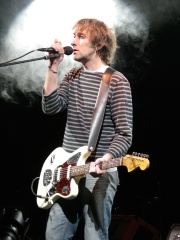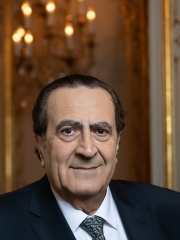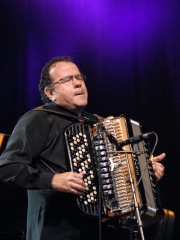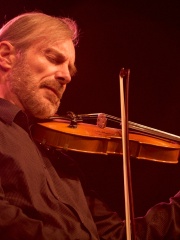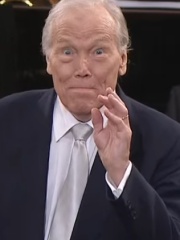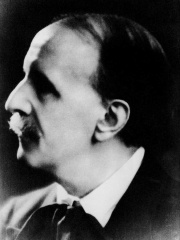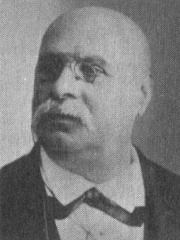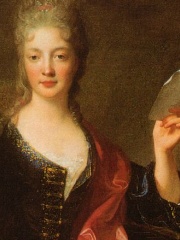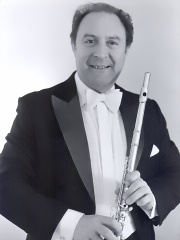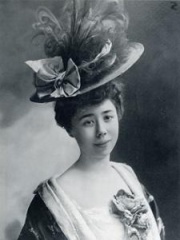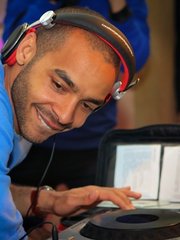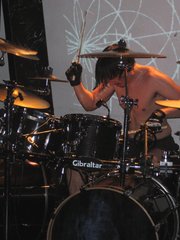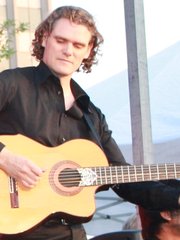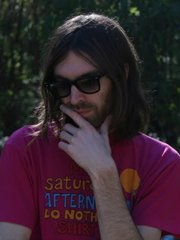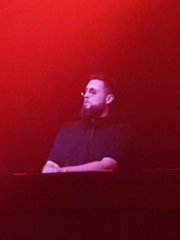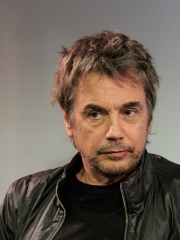
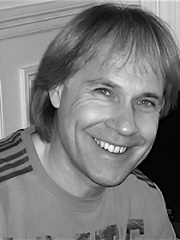
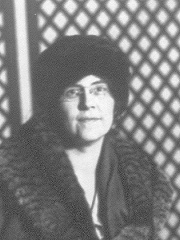

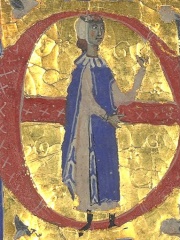
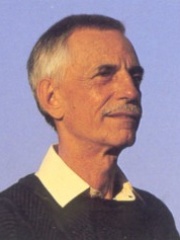
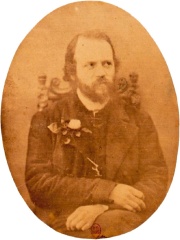
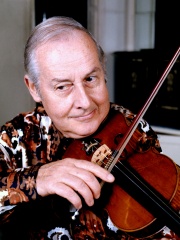
The Most Famous
MUSICIANS from France
This page contains a list of the greatest French Musicians. The pantheon dataset contains 3,175 Musicians, 101 of which were born in France. This makes France the birth place of the 4th most number of Musicians behind United Kingdom, and Germany.
Top 10
The following people are considered by Pantheon to be the top 10 most legendary French Musicians of all time. This list of famous French Musicians is sorted by HPI (Historical Popularity Index), a metric that aggregates information on a biography's online popularity. Visit the rankings page to view the entire list of French Musicians.

1. Jean-Michel Jarre (b. 1948)
With an HPI of 79.27, Jean-Michel Jarre is the most famous French Musician. His biography has been translated into 66 different languages on wikipedia.
Jean-Michel André Jarre (French: [ʒɑ̃ miʃɛl ɑ̃dʁe ʒaʁ]; born 24 August 1948) is a French composer, performer and record producer. He is a pioneer in the electronic, ambient and new-age genres, and is known for organising outdoor spectacles featuring his music, accompanied by vast laser displays, large projections and fireworks. Jarre was raised in Lyon by his mother and grandparents and trained on the piano. From an early age, he was introduced to a variety of art forms, including street performers, jazz musicians and the artist Pierre Soulages. His musical style was perhaps most heavily influenced by Pierre Schaeffer, a pioneer of musique concrète at the Groupe de Recherches Musicales. His first mainstream success was the 1976 album Oxygène. Recorded in a makeshift studio at his home, the album sold an estimated 18 million copies. Oxygène was followed in 1978 by Equinoxe, and in 1979, Jarre performed to a record-breaking audience of more than a million people at the Place de la Concorde, a record he has since broken three times. More albums followed, but his 1979 concert served as a blueprint for his future performances around the world. Several of his albums have been released to coincide with large-scale outdoor events. As of 2004, Jarre had sold an estimated 80 million albums and singles. He was the first Western musician officially invited to perform in the People's Republic of China and held the world record for the largest-ever audience at an outdoor event for his Moscow concert on 6 September 1997, which was reputed to have been attended by about 3.5 million people.

2. Richard Clayderman (b. 1953)
With an HPI of 73.07, Richard Clayderman is the 2nd most famous French Musician. His biography has been translated into 51 different languages.
Richard Clayderman (French pronunciation: [ʁiʃaʁ kledɛʁman]; born Philippe Pagès French pronunciation: [filip paʒɛs], 28 December 1953 in Paris) is a French pianist who has released numerous albums including the compositions of Paul de Senneville, Olivier Toussaint and Marc Minier, instrumental renditions of popular music, rearrangements of movie soundtracks, ethnic music, and easy-listening arrangements of popular works of classical music.

3. Nadia Boulanger (1887 - 1979)
With an HPI of 72.63, Nadia Boulanger is the 3rd most famous French Musician. Her biography has been translated into 49 different languages.
Juliette Nadia Boulanger (French: [ʒyljɛt nadja bulɑ̃ʒe] ; 16 September 1887 – 22 October 1979) was a French music teacher, conductor and composer. She taught many of the leading composers and musicians of the 20th century, and also performed occasionally as a pianist and organist. From a musical family, she achieved early honours as a student at the Conservatoire de Paris but, believing that she had no particular talent as a composer, she gave up writing music and became a teacher. In that capacity, she influenced generations of young composers, especially those from the United States and other English-speaking countries. Among her students were many important composers, soloists, arrangers, and conductors, including Grażyna Bacewicz, Daniel Barenboim, Lennox Berkeley, İdil Biret, Elliott Carter, Aaron Copland, David Diamond, John Eliot Gardiner, Philip Glass, Roy Harris, Quincy Jones, Dinu Lipatti, Igor Markevitch, Astor Piazzolla, Julia Perry, George Walker, and over 250 others. Boulanger taught in the U.S. and England, working with music academies including the Juilliard School, the Yehudi Menuhin School, the Longy School, the Royal College of Music and the Royal Academy of Music, but her principal base for most of her life was her family's flat in Paris, where she taught for most of the seven decades from the start of her career until her death at the age of 92. Boulanger was the first woman to conduct many major orchestras in America and Europe, including the BBC Symphony, Boston Symphony, Hallé, and Philadelphia orchestras. She conducted several world premieres, including works by Copland and Stravinsky.

4. Thomas Bangalter (b. 1)
With an HPI of 71.33, Thomas Bangalter is the 4th most famous French Musician. His biography has been translated into 27 different languages.
Thomas Bangalter (French pronunciation: [tɔmɑ bɑ̃ɡaltɛʁ]; born 3 January 1975) is a French musician and record producer. He is best known as one half of the former French house music duo Daft Punk, alongside Guy-Manuel de Homem-Christo. He has recorded and released music as a member of the trio Stardust, the duo Together, and as a solo artist. Bangalter's work has influenced a wide range of artists in various genres. Bangalter owned the music label Roulé until its liquidation in 2018. Since Daft Punk's breakup in 2021, he has released music under his solo label, Alberts & Gothmaan, an anagram of his name. He has provided compositions for several films, leading the soundtrack to Irréversible, as well as the ballet Mythologies. Outside of music production, his credits include film director and cinematographer. Bangalter is the son of French music composer and artist Daniel Vangarde.
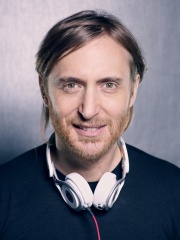
5. David Guetta (b. 1967)
With an HPI of 71.17, David Guetta is the 5th most famous French Musician. His biography has been translated into 90 different languages.
Pierre David Guetta (French pronunciation: [pjɛʁ david ɡeta]; born 7 November 1967) is a French DJ and record producer. He has sold over 10 million albums and 65 million singles globally, with more than 30 billion streams on Spotify. Guetta was voted the number one DJ in the DJ Mag Top 100 DJs polls in 2011, 2020, 2021, 2023 and 2025. In 2013, Billboard ranked his song "When Love Takes Over" (featuring Kelly Rowland) as the number one dance-pop collaboration of all time. He released his debut album, Just a Little More Love, in 2002. Later, he released Guetta Blaster (2004) and Pop Life (2007). Guetta achieved mainstream success with his fourth album One Love (2009), which included his breakthrough singles "When Love Takes Over" (featuring Kelly Rowland), "Gettin' Over You" (with Chris Willis featuring Fergie and LMFAO), "Sexy Bitch" (featuring Akon) and "Memories" (featuring Kid Cudi); the former three reached number one in the United Kingdom. His fifth album, Nothing but the Beat (2011), was met with continued success, containing the hit singles "Where Them Girls At" (featuring Flo Rida and Nicki Minaj), "Little Bad Girl" (featuring Taio Cruz and Ludacris), "Without You" (featuring Usher), "Titanium" (featuring Sia) and "Turn Me On" (featuring Nicki Minaj). In 2018, he released his seventh album 7, which included twelve tracks under his alias Jack Back. In 2019, he announced his creation of the EDM subgenre "future rave" along with fellow producer Morten Breum; they released a collaborative extended play, New Rave in July 2020. In 2022, he released the single "I'm Good (Blue)" (with Bebe Rexha), which remains the third longest-running chart-topping song on the US Dance/Electronic chart. Guetta's accolades include two Grammy Awards, an American Music Award, six Electronic Dance Music Awards and a Billboard Music Award. In June 2021, he sold his recorded music catalog for US$100 to US$150 million.

6. Arnaut Daniel (1150 - 1210)
With an HPI of 70.29, Arnaut Daniel is the 6th most famous French Musician. His biography has been translated into 45 different languages.
Arnaut Daniel (Occitan: [aɾˈnawd daniˈɛl]; fl. 1180–1200) was an Occitan troubadour of the 12th century, praised by Dante as "the best smith" (miglior fabbro) and called a "grand master of love" (gran maestro d'amore) by Petrarch. In the 20th century he was lauded by Ezra Pound in The Spirit of Romance (1910) as the greatest poet to have ever lived.

7. Paul Mauriat (1925 - 2006)
With an HPI of 70.01, Paul Mauriat is the 7th most famous French Musician. His biography has been translated into 37 different languages.
Paul Julien André Mauriat (French: [pɔl mɔʁja] or [moʁja]; 4 March 1925 – 3 November 2006) was a French orchestra leader, conductor of Le Grand Orchestre de Paul Mauriat, who specialized in the easy listening genre. He is best known in the United States for his million-selling remake of André Popp's "Love is Blue", which was number 1 for 5 weeks in 1968. Other recordings for which he is known include "El Bimbo", "Toccata", "Love in Every Room/Même si tu revenais", and "Penelope". He (using the pseudonym Del Roma) co-wrote the song "Chariot" (also known as "I Will Follow Him") with Franck Pourcel (using the pseudonym J.W. Stole).

8. Charles-Valentin Alkan (1813 - 1888)
With an HPI of 68.62, Charles-Valentin Alkan is the 8th most famous French Musician. His biography has been translated into 40 different languages.
Charles-Valentin Alkan (French: [ʃaʁl valɑ̃tɛ̃ alkɑ̃]; 30 November 1813 – 29 March 1888) was a French composer and virtuoso pianist. At the height of his fame in the 1830s and 1840s he was, alongside his friends and colleagues Frédéric Chopin and Franz Liszt, among the leading pianists in Paris, a city in which he spent virtually his entire life. Alkan earned many awards at the Conservatoire de Paris, which he entered before he was six. His career in the salons and concert halls of Paris was marked by his occasional long withdrawals from public performance, for personal reasons. Although he had a wide circle of friends and acquaintances in the Parisian artistic world, including Eugène Delacroix and George Sand, from 1848 he began to adopt a reclusive life style, while continuing with his compositions – virtually all of which are for the keyboard. During this period he published, among other works, his collections of large-scale studies in all the major keys (Op. 35) and all the minor keys (Op. 39). The latter includes his Symphony for Solo Piano (Op. 39, nos. 4–7) and Concerto for Solo Piano (Op. 39, nos. 8–10), which are often considered among his masterpieces and are of great musical and technical complexity. Alkan emerged from self-imposed retirement in the 1870s to give a series of recitals that were attended by a new generation of French musicians. Alkan's attachment to his Jewish origins is displayed both in his life and his work. He was the first composer to incorporate Jewish melodies in art music. Fluent in Hebrew and Greek, he devoted much time to a complete new translation of the Bible into French. This work, like many of his musical compositions, is now lost. Alkan never married, but his presumed son Élie-Miriam Delaborde was, like Alkan, a virtuoso performer on both the piano and the pedal piano, and edited a number of the elder composer's works. Following his death (which according to persistent but unfounded legend was caused by a falling bookcase), Alkan's music became neglected, supported by only a few musicians including Ferruccio Busoni, Egon Petri and Kaikhosru Sorabji. From the late 1960s onwards, led by Raymond Lewenthal and Ronald Smith, many pianists have recorded his music and brought it back into the repertoire.

9. Stéphane Grappelli (1908 - 1997)
With an HPI of 68.06, Stéphane Grappelli is the 9th most famous French Musician. His biography has been translated into 42 different languages.
Stéphane Grappelli (French pronunciation: [stefan ɡʁapɛli]; 26 January 1908 – 1 December 1997) was a French jazz violinist. He is best known as a founder of the Quintette du Hot Club de France with guitarist Django Reinhardt in 1934. It was one of the first all-string jazz bands. He has been called "the grandfather of jazz violinists" and continued playing concerts around the world well into his eighties. For the first three decades of his career, he was billed using a gallicised spelling of his last name, Grappelly, reverting to the Italian spelling Grappelli in 1969. The latter is used when referring to the violinist, including reissues of his early work.
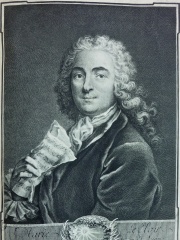
10. Jean-Marie Leclair (1697 - 1764)
With an HPI of 67.31, Jean-Marie Leclair is the 10th most famous French Musician. His biography has been translated into 27 different languages.
Jean-Marie Leclair l'aîné (Jean-Marie Leclair the Elder) (10 May 1697 – 22 October 1764) was a French Baroque violinist and composer. He is considered to have founded the French violin school. His brothers, the lesser-known Jean-Marie Leclair the younger (1703–77) as well as Pierre Leclair (1709–84) and Jean-Benoît Leclair (1714–after 1759), were also musicians.
People
Pantheon has 101 people classified as French musicians born between 1 and 1996. Of these 101, 61 (60.40%) of them are still alive today. The most famous living French musicians include Jean-Michel Jarre, Richard Clayderman, and Thomas Bangalter. The most famous deceased French musicians include Nadia Boulanger, Arnaut Daniel, and Paul Mauriat. As of April 2024, 9 new French musicians have been added to Pantheon including St Germain, DJ Mehdi, and Bénabar.
Living French Musicians
Go to all RankingsJean-Michel Jarre
1948 - Present
HPI: 79.27
Richard Clayderman
1953 - Present
HPI: 73.07
Thomas Bangalter
1 - Present
HPI: 71.33
David Guetta
1967 - Present
HPI: 71.17
Jacques Dutronc
1943 - Present
HPI: 65.15
Michel Polnareff
1944 - Present
HPI: 63.37
Yann Tiersen
1970 - Present
HPI: 62.71
Claude-Michel Schönberg
1944 - Present
HPI: 62.24
Michel Sogny
1947 - Present
HPI: 62.11
Richard Galliano
1950 - Present
HPI: 60.37
Bob Sinclar
1969 - Present
HPI: 60.22
Jean-Luc Ponty
1942 - Present
HPI: 59.08
Deceased French Musicians
Go to all RankingsNadia Boulanger
1887 - 1979
HPI: 72.63
Arnaut Daniel
1150 - 1210
HPI: 70.29
Paul Mauriat
1925 - 2006
HPI: 70.01
Charles-Valentin Alkan
1813 - 1888
HPI: 68.62
Stéphane Grappelli
1908 - 1997
HPI: 68.06
Jean-Marie Leclair
1697 - 1764
HPI: 67.31
Georges Prêtre
1924 - 2017
HPI: 67.29
Louis Vierne
1870 - 1937
HPI: 66.86
Émile Waldteufel
1837 - 1915
HPI: 66.63
Élisabeth Jacquet de La Guerre
1665 - 1729
HPI: 65.75
Jean-Pierre Rampal
1922 - 2000
HPI: 65.75
Marguerite Long
1874 - 1966
HPI: 64.99
Newly Added French Musicians (2025)
Go to all RankingsSt Germain
1969 - Present
HPI: 48.05
DJ Mehdi
1977 - 2011
HPI: 45.76
Bénabar
1969 - Present
HPI: 45.46
David Fray
1981 - Present
HPI: 43.48
Mario Duplantier
1981 - Present
HPI: 43.30
Gesaffelstein
1985 - Present
HPI: 43.28
Jesse Cook
1964 - Present
HPI: 41.88
Breakbot
1981 - Present
HPI: 39.28
Tchami
1985 - Present
HPI: 36.64
Overlapping Lives
Which Musicians were alive at the same time? This visualization shows the lifespans of the 25 most globally memorable Musicians since 1700.



